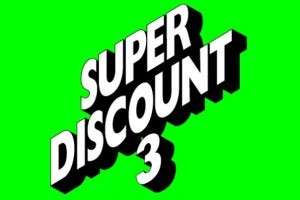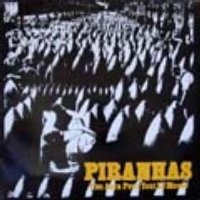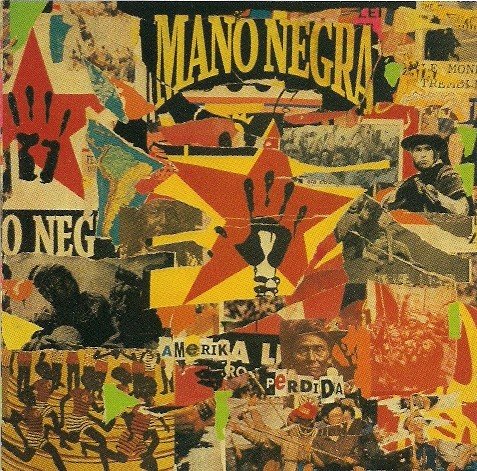
File download is hosted on Megaupload
Étienne de Crécy’s first Super Discount album – initially released as a series of EPs in 1996, then rounded up for album release – was not just one of the very best of the French Touch albums to see the light of day, it was one of the Frenchest.
From the laid-back, almost loungey feel, to the grace and beauty of the production, which touched on disco, house and dub, to the way the music always seemed to take exactly how long it needed to make its point, be it 10 minutes (opener, Le Patron est Devenu Fou!), or nine seconds (Tout à 10 Balles), Super Discount radiated effortless Gallic élan. It was house music, by and large, but took a magpie approach to its source material, sampling everything from jazzy piano, to dub bass lines to flamenco castanets, in a way that The Avalanches would later emulate.
So cool was Super Discount, in fact, that it didn’t seem to even be bothered who it was by. De Crécy was the ringleader, certainly, and two tracks are credited to him alone, but otherwhere there are tracks from Minos Pour Main Basse (Sur La Ville) and Mooloodjee (De Crécy pseudonyms); La Chatte Rouge (De Crécy and Philippe Zdar, then of Cassius, who had previously worked with De Crécy as Motorbass); Air (remixed by De Crécy); Alex Gopher; Mr. Learn (Laurent Collobert) and the enigmatic DJ Tall. In many of these tracks, Crécy may or may not have had a hand. But it somehow didn’t matter.
“Don’t worry,” you can almost hear the record purr from behind its silky funk throb, “Don’t get hung up on such boring Anglo Saxon concepts as who made the song. Just relax and enjoy.” And enjoy we certainly did.
As if that wasn’t enough, Super Discount also had a theme to bind the album together, with songs named after the kind of brightly coloured promotional slogans you might see in failing shops: “Le patron est devenu fou!” (“The Boss has gone Mad!”); “Affaires à faire” (“Bargains Galore”); “Tout doit disparaître” (“Everything Must Go”); etc. Super Discount indeed. Maybe that would have sounded weird in English, tacky even, but most things sound better in French and so it proved with Super Discount.
The album was a massive success, topping many critics’ lists and shifting some 200,000 copies. An immediate sequel would have capitalised on this but instead De Crécy dumped both Super Discount name and concept for a solo album in 2000, Tempovision, creating a record that was both oddly melancholic (De Crécy apparently thought of it as a blues album) and a significant change in sound, relying more on synths than instrumental samples. It spawned a UK near hit in Am I Wrong (number 44 with a bullet) but is – perhaps unfairly – rather forgotten today.
Super Discount did eventually get a sequel, with SD2 released in September 2004, just as the French dance underground started to stir again, courtesy of Justice’s world-beating remix of Simian’s We Are Your Friends, released the same year on DJ Hell’s International DeeJay Gigolo label.
Super Discount 2 was, like its predecessor, loosely based around a concept, with all of the tracks named after filesharing protocols (Grokster, Soul Seek, Limewire etc). The collaborators were back too, with Philippe Zdar, Boom Bass, DJ Mehdi, Alex Gopher and Mr. Learn all helping out with production. The music, however, was very different, showcasing a more upbeat, electro house sound, which probably fit better with the times (both 2004 and 1984, in fact).
The album received strong reviews and Fast Track was a deceptively simple club hit, one that owed more than a little to new-wave French producer Vitalic. But it missed the original’s ingenuity, louche eclectic charm and soul, sounding instead like just another collection of electrohouse bangers, albeit one that was immaculately produced. It also lacked the original album’s canny sense of being both timely – it was a very late 90s record – and somehow timeless, a fact not helped but the none-more-early-2000s track names on SD2 (who remembers Grokster today?).
I had long assumed that that was rather it for Super Discount, with De Crécy concentrating more on his elaborate Beats’n’Cubes live shows. But in July 2014 it was revealed that Super Discount would be returning for a third time, an announcement coupled with the release of Night (Cut The Crap), a track which married the electro sound of SD2 to the laid-back tempo of SD1. One month later came Hashtag My Ass, which may have enjoyed more success for its Instagram-powered video than its actual music but was a pretty decent slice of Alan Braxe-esque disco electro nonetheless.
As it turned out Hashtag My Ass, whose lyrics referenced various social media-friendly terms including “selfie”, “hashtag” and “no filter”, gave a pretty big clue as to what Super Discount 3 would take as its theme: social media. The new album, which will be released on January 19, includes titles like WTF, Amazing and Follow and the Super Discount collaboration spree also returns on volume three.
This time, though, De Crécy has spread his net rather wider: previous Super Discount collaborators were limited to de Crécy’s immediate family of French producers and – while two previous guests do return on SD3 (Julien Delfaud and Alex Gopher) – the guests on the new album are notable both for their international spread (they include De La Soul, Baxter Dury and Cults’ Madeline Follin) and the fact they contribute vocals rather than production.
We can deduce, then, that for De Crécy the Super Discount album formula essentially = overall theme plus collaboration. SD3 certainly delivers on that. And yet, curiously, it doesn’t really feel like a Super Discount album. Or, to put it slightly more accurately, it doesn’t feel like Super Discount 1, the album which both introduced and perfected the Super Discount formula.
SD3 is, in fact, being touted as the link between the two previous Super Discount releases. “The project’s third chapter forms a connecting link between the first two episodes,” the press release claims. “Although synthesisers are still in the front line (true to the techno energy of Super Discount 2), the samples and production go to create a more house, funky sound (the trademark of the first volume).”
The first part of this is certainly true: SD3 has synthesisers and lots of them, giving the album a glowing analogue feel. But the samples and production feel nothing like the original Super Discount: there’s nothing here of the lush reggae echo of SD1, nothing of that album’s mournful charm, none of the sampled instrumental loops which gave SD1 an earthy jazz feel and none of the idiosyncrasies of the first Super Discount (the 10-second songs, the random bursts of French conversation, the rock guitar snippet which bizarrely opens the album). In its place is identikit disco electro and lots of it.
Then there are the vocals. SD1 and 2 were largely instrumental albums, with vocals being limited to the odd floating sample (there was a vocal mix of Fast Track but it is not on the original SD2). But Super Discount 3 is crawling with vocals: five of its ten tracks feature full guest vocals and not one of them from a French citizen. Maybe that shouldn’t matter. But for a project that once seemed to revel in its Gallic charm, it does.
Because – whisper it – Super Discount doesn’t even feel French. In fact, it sounds like one of those albums that could have come from anywhere. It has the same international synth lines you hear from Finland to Florida, the same vaguely disco drums you dance to in Rotherham and Rotterdam, and the same Anglo American guest vocalists that pop up in album credits from Paris, France to Paris, Texas.
OK, maybe that sounds slightly harsh – De La Soul aside, the line of of vocal guests is actually pretty original. But you get my point: Super Discount 3 casts precisely no geographical shadow and this feels like a missed opportunity.
None of this means SD3 is a bad album. And it isn’t: You, featuring Madeline Follin, is a great pop tune, elegant in its gothic simplicity, while Smile has something of the Daft Punk about its graceful descending chord structure. But it is hard to see why this is a Super Discount album, rather than an Étienne de Crécy one. Worse, in fact: what arguably makes this album into a Super Discount – its overarching social media theme – is also the thing that will make it appear horrendously dated soon. Or at least I hope we’re not still talking about selfies in 2017.
(On the subject of themes, I’ve always thought the filesharing motif of SD2 was a wry continuation of the first album’s price-cutting titles (Everything Must Go etc), a comment on how we’ve gone from a society where we demand the lowest possible prices, to one where we don’t pay for anything. How social media fits into this I have no idea and the link between 1 and 2 may only exist in my imagination anyway.)
Étienne de Crécy will remain a legendary figure in French dance music whatever he sees fit to do, thanks to his involvement in Super Discount 1 and Motorbass (whose Pansoul album form 1996 is a classic). Frankly, he can do whatever he wants with the Super Discount idea and if that involves somewhat underwhelming follow ups, then so be it.
But using the Super Discount name does, inevitably, create certain expectations around an album which don’t come with a De Crécy solo release. The first album was one of its kind, a ten out of ten classic which helped define the French Touch sound; the second was disappointing but made sense sonically in 2004.
The third is boring, anonymous and indistinct. I’ve not said much about the music here but, honestly, there’s not that much to say. The disco drums kick in at around 120BPM, a classy synth line starts up and someone starts singing. Repeat 10 times, with varying degrees of success.
It really is that simple; the album really is that grey. Poor sequels are acceptable, of course (just ask Raekwon). But the one thing that Super Discount 1 never ever was, was boring. And that makes Super Discount 3 a largely unwanted member of the family.









































